The Public Power files
Topics
Ready to transform energy for a livable future? TNI's Public Power Files unveil the tools to dismantle fossil fuel dependence, democratize energy systems, and empower communities worldwide. Read the full dossier below.
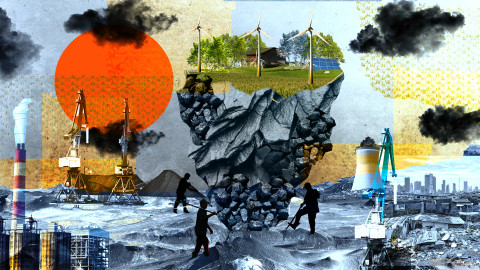
Fourate Chahal El Rekaby
People are craving systemic solutions to stop climate change. Our energy system holds the most potential to switch societies to renewables and reduce emissions. Making power public is the only way to get us there.
With energy, whoever is the boss gets the benefits. It’s time for us to take back control so that everyone benefits, instead of private companies. Replace profiteering that prevents energy systems from phasing out fossil fuels and ramping up renewables. As proven by the struggles from Mexico to South Africa, public ownership of energy can offer exactly this: an urgent, viable and bold solution for the failures of profit-driven markets and multinationals.
Public power is about reclaiming our energy across scales. It’s a stepping stone for the democratic control needed to make system-wide transition operations responsive to people’s needs on the ground.
TNI's Public Power files provide pathways to democratic, system-wide alternatives to the fossil fuel cycle – containing the cutting-edge evidence social movements need to expose the many harms of today's energy economy.
Energy Transition Mythbusters
Get ready to challenge the six most powerful policies that are derailing the energy transition. Together, they aim to persuade us that the private sector, free markets, lower prices and decentralisation can decarbonise the energy system — and that intellectual property rights and trade and investment protection agreements are necessary to facilitate this.
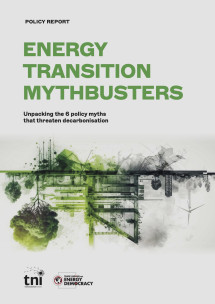
'Green' Multinationals Exposed
Discover how 15 of the world's biggest power producers and technology manufacturers are marketing themselves as ‘green’ to boost their reputation and benefit from public subsidies, while grabbing lands, violating human rights and destroying communities along the way.
Financial returns, not decarbonisation, is their primary business. ‘Green’ capital has taken over the energy transition, dictating its pace and blocking climate policies that hamper its profits.
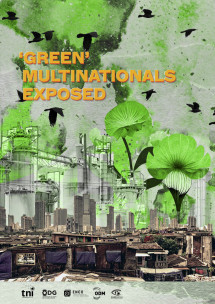
Reclaiming Energy
The Reclaiming Energy Report—the third installment in TNI's Public Power trilogy—offers systemic solutions to the climate crisis—advocating decolonial, democratic governance and transformative public–community partnerships. Building on the trilogy's vision, this report reimagines energy as a public good and charts transformative pathways to just, democratic, and sustainable energy systems.
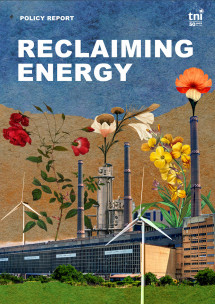
Country Case Studies
Building on case studies from Tunisia, South Africa, UK, Costa Rica and Mexico, the Reclaiming Energy report concludes with a tour of other prominent struggles for publicly owned energy. It leaves no doubt that this is a worldwide movement for clean energy and a just transition as global public goods. One that can cut back emissions globally, while meeting people’s energy needs locally.
-
Subsidising corporate profits derails decarbonisation in the Netherlands
Publication date: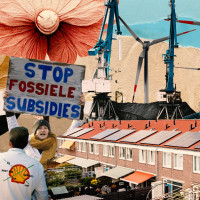
-
Under the guise of privatisation, Tunisia experiences green colonialism Energy transition country struggle
Publication date: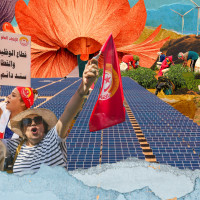
-
Defending popular sovereignty and Indigenous peoples’ rights in Mexico Energy transition country struggle
Publication date: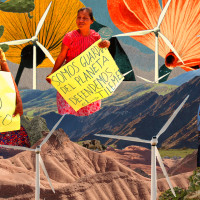
-
Public energy and the popular struggle for democracy in Costa Rica Energy transition country struggle
Publication date: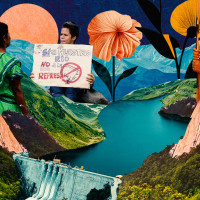
-
The living legacy of privatisation in the United Kingdom Energy transition country struggle
Publication date: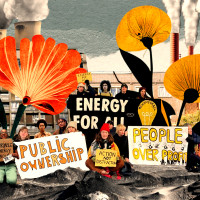
-
Democratising Eskom in South Africa Energy transition country struggle
Publication date:
-
Writings on water democracy Public policies and community water management in Latin America
Publication date:
-
Beyond the limelight Poland’s municipal self-governance for democratic public services
Publication date:
-
Green Banking or Public Banks? The Choice between Profit-driven and Public-driven approaches to Climate Finance
Publication date:
Public Power trilogy
-
Energy Transition Mythbusters Unpacking the 6 policy myths that threaten decarbonisation
Publication date: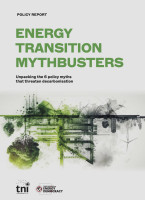
-
'Green' Multinationals Exposed How the energy transition is being hijacked by corporate interests
Publication date: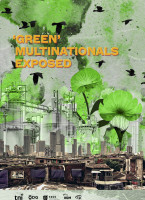
-
Reclaiming Energy Public pathways to break the fossil fuel cycle
Publication date:
-
Reclaiming Energy Report: Part 1 - The Profit Trap Subsidies, Fossil Fuels and Energy Expansion
Publication date: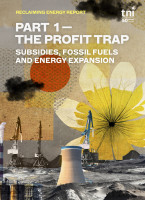
-
Reclaiming Energy Report: Part 2 - Better Public Ownership Accountability, Affordability and Democracy
Publication date: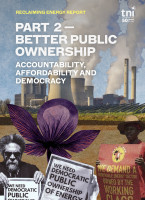
-
Reclaiming Energy Report: Part 3 - Beyond the State Decolonisation, Just Transition and Energy Democracy
Publication date: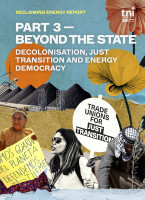
-
Reclaiming Energy Report: Part 4 - Global Public Goods Public-Public Partnerships and a People's Take-Over
Publication date: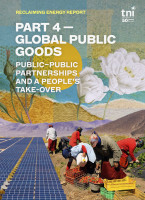
Our Future is Public
Sign on to the Energy Democracy declaration if you want to take on greenwashing corporations and reclaim the entire energy sector through public ownership and democratic governance.
Drawn up by Indigenous representatives, trade unions, ecofeminists, solidarity collectives and climate justice organisations, the aim of this declaration is to strengthen, expand and unify the many social movements committed to energy and environmental justice.
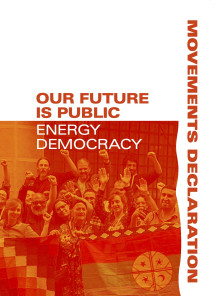
Learn all about how we can reclaim energy as a whole by building popular power through public ownership, deepening democracy and decolonial justice. Dive into real-world examples throughout our report to find out what that looks like in practice.
To turn public ownership into energy democracy, public bodies must start sharing power and resources with communities. This takes multiple forms:
- Reverse energy privatisations on all levels and restore accountable public electricity utilities, by resetting their public mission and mandate to start planning, funding and delivering a managed decline of fossil fuels.
- Create public–public partnerships (PuPs) for an effective and well-resourced public energy model that can lead on decarbonisation. These solidarity-based collaborations enable public energy institutions to acquire, expand and jointly build urgent transition capacities – technical and otherwise.
- Instate progressive energy tariffs to help cut unnecessary consumption, protect social use and factor in people’s needs and ability to pay. This, to enable societies to prioritise essential, social reproductive energy use – whether it is to keep water, schools and public transport running, or to power and make visible all the care, cooking and cleaning work.
- Build public–community partnerships that combine State-owned enterprises with more localised governance across scale and territories – community renewables can only thrive as part of a country-wide public system. While a state-owned electricity utility must be responsive and accountable to the energy needs and the impacts of its operations on the ground.
- Defend the rights of rural, Indigenous and other racialised people and make sure that the struggle for public renewables is not pitted against but reinforcing their demands for territorial self-determination. The struggle for a free Palestine and a global energy embargo on Israel is the most urgent case in point to sever ties with fossil fuels and colonialism.
Learn more
-
Ecofeminism: fueling the journey to energy democracy
Publication date:
-
Why we need public power and energy democracy for feminist futures
Publication date:
-
Ecofeminism (2): Towards an Ecofeminist Energy Future Lavinia Steinfort in Conversation with Shannon Bell, Cara Daggett, and Christine Labuski
Publication date: -
Building public power Municipal manual for energy transitions
Publication date: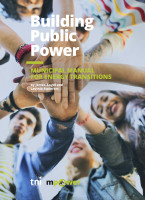
Further analyses
See below further analyses on the state of power of the energy economy, struggles for dismantling green colonialism and the parameters of a genuinely just transition.
-
Energy, Power and Transition State of Power 2024
Publication date: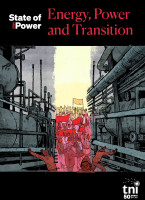
-
Dismantling Green Colonialism Energy and Climate Justice in the Arab Region
Publication date:
-
From Crisis to Transformation What is Just Transition?
Publication date: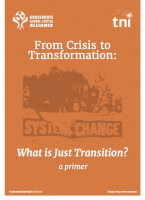
-
Just Transition How environmental justice organisations and trade unions are coming together for social and environmental transformation
Publication date: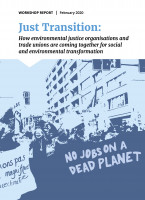
-
Beating the Climate Clock Workers, citizens and state action in the UK
Publication date:


